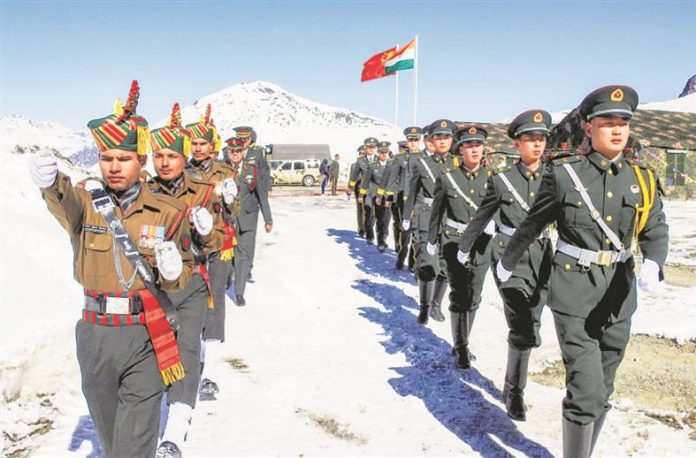New Delhi: The next round of India-China border talks will take place on March 11.
So far, 14 rounds of talks have been conducted since June 6, 2020 for resolving the friction points along the Line of Actual Control (LAC).
The talks till now have resulted in the resolution of issues in North and South Bank of Pangong Tso, Galwan and Gogra Hot Spring areas.
There was, however, no fresh breakthrough in the 14th round of the dialogue that took place on January 12 this year.
The two sides will hold the next round at Chushul Moldo meeting point in Ladakh on Friday to end the 22-month standoff at the remaining friction areas, according to the sources.
Recent statements by both sides to find a mutually acceptable solution have been encouraging and positive in nature, they noted.
India has been talking with China about a quick disengagement on remaining friction points in eastern Ladakh such as Patrolling Point 15 (Hot Springs), Depsang Bulge and Demchok.
The eastern Ladakh border standoff between the Indian and Chinese militaries erupted on May 5, 2020, following a violent clash in the Pangong lake area.
Both sides gradually enhanced their deployment by rushing in tens of thousands of soldiers as well as heavy weaponry.
Each side currently has around 50,000 to 60,000 troops along the Line of Actual Control (LAC) in the sensitive sector.
Chinese Foreign Minister Wang Yi said on Monday that “some setbacks” in China-India relations in recent years are not in the fundamental interests of both the countries even as he stated that differences over the vexed boundary issue and territory should not “interfere with the bigger picture of bilateral cooperation”.
Wang, who is also China’s Special Representative on the India-China boundary question along with National Security Advisor (NSA) Ajit Doval, expressed the hope that China and India will be “partners for mutual success instead of adversaries of mutual attrition”.
China and India should be partners rather than rivals, he said, replying to a question from PTI that the relations continue to remain at rock bottom for the third year in succession and how Beijing sees the ties evolving this year.
Wang said that some forces have always sought to stoke tension between China and India, in an apparent reference to the US.
“As regards the boundary question, it is left over from history,” he said, repeating Beijing’s stand.
Last month, External Affairs Minister S Jaishankar had said India’s relationship with China is right now going through a “very difficult phase” and emphasised that the “state of the border will determine the state of the relationship”.
“For 45 years, there was peace, there was stable border management, there were no military casualties on the border from 1975. That changed because we had agreements with China not to bring military forces to the border (the Line of Actual Control or LAC) and the Chinese violated those agreements,” the minister said at Munich Security Conference.
“Now, the state of the border will determine the state of the relationship. That’s natural. So obviously, the relations with China right now are going through a very difficult phase,” he added.


